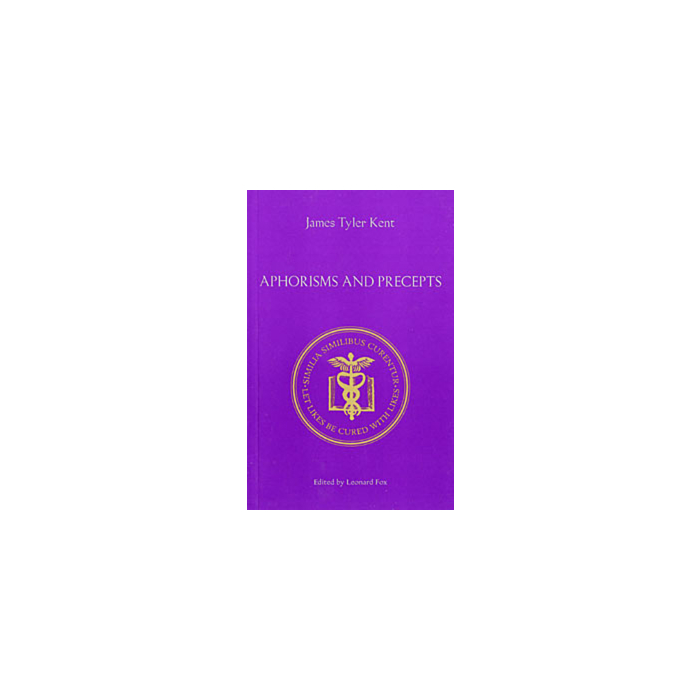Aphorisms and Precepts
Delen op sociale media
After Samuel Hahnemann himself, James Tyler Kent (1849-1916) was arguably the most important individual in the history of classical homeopathy. His Repertory of the Homeopathic Materia Medica is still used, and is the basis for all of the revised repertories that have appeared in recent times. His Lectures on Homeopathic Philosophy remains a work of profoun and enduring homeopathic thought and practice, and his books on materia medica are still fundamental sources for all students and practitioners of homeopathy.
Less well known is the fact that Kent was a devoted follower of the spiritual teachings of Emanuel Swedenborg, the great eighteenth-century scientist, visionary, and theologian. Kent himself wrote: "Through familiarity with Swedenborg, I have found the correspondences wrought out from the Word of God harmonious with all that I have learned...."
Swedenborg's influence on Kent is particularly evident in the Aphorisms and Precepts, which is a remarkable repository of homeopathic wisdom, presented in succinct, epigrammatic style. This new edition has been edited to correct the errors (misprints, word omissions, etc.), as well as the inconsistent punctuation, of the text originally published in New Remedies, Clinical Cases, and Lesser Writings, a volume that has been reprinted many times without emendation. It is hoped that this small book will encourage further study of both Kent's invaluable work and Swedenborg's timeless teachings.
| ISBN | 9781883270216 |
|---|---|
| Auteur | James Tyler Kent |
| Type | Paperback |
| Taal | English |
| Publicatiedatum | 2010 |
| Pagina's | 76 |
| Recensie | This book review is reprinted from Volume 9, 2003 Edition of The American Homeopath with permission from The American Homeopath. Reviewed by Melanie Grimes This little book comes to us from a Swedenborgian press. The introduction by Pacheco discusses the influence of Swedenborg on homeopathic philosophy. The book itself list 452 small paragraphs, or aphorisms. Some are specific to homeopathy, some to are more general. For instance: Aphorism #138: "One cannot afford to be liberal with principle. " Specific to homeopathy, Kent says (Aphorism #129): "When Psora has become a complete ultimation of causes, it becomes contagious." This small volume contributes a great deal to our understanding of one of our foremost American homeopaths. It lends insights to his medicine and beliefs. Kent himself sums up this book best in Aphorism #3: "You cannot divorce medicine and theology. Man exists all the way down, from his innermost spiritual to our outermost natural." |
Recensie
This book review is reprinted from Volume 9, 2003 Edition of The American Homeopath with permission from The American Homeopath.
NASH Membership Office
1122 East Pike Street, Suite 1122
Seattle, WA 98122
Telephone: (206) 720-7000
Fax: (206) 329-5684
Reviewed by Melanie Grimes
This little book comes to us from a Swedenborgian press. The introduction by Pacheco discusses the influence of Swedenborg on homeopathic philosophy. The book itself list 452 small paragraphs, or aphorisms. Some are specific to homeopathy, some to are more general. For instance:
Aphorism #138: "One cannot afford to be liberal with principle. "
or
Aphorism #284: "There is no cell or tissue so small that it does not keep its soul and life force in it. "
Specific to homeopathy, Kent says (Aphorism #129): "When Psora has become a complete ultimation of causes, it becomes contagious."
This small volume contributes a great deal to our understanding of one of our foremost American homeopaths. It lends insights to his medicine and beliefs.
Kent himself sums up this book best in Aphorism #3: "You cannot divorce medicine and theology. Man exists all the way down, from his innermost spiritual to our outermost natural."

